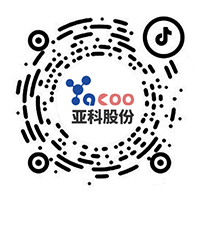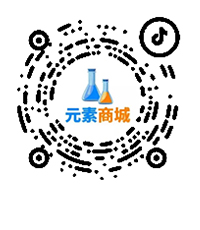Search Product
Structure Search
Search
Advantage Products
Location: Industrial Info
Research team from Tsinghua University discovered a new way to regulate lithium-sulfur batteries
Lithium-sulfur battery is a promising electrochemical energy storage system, which has attracted wide attention of researchers in recent years because of the higher theoretical energy density (2600 Whkg-1) than the existing lithium-ion batteries.
Limitations of lithium-sulfur batteries
Lithium-sulfur batteries are mainly composed of a positive electrode, a binder, an electrolyte, a separator, and a negative electrode. Lithium-sulfur batteries theoretically have a relatively high energy density, but their capacity decays rapidly, and lithium-sulfur batteries have low sulfur positive conductivity, "shuttle effect" of polysulfide compounds, lithium ion deposition, and safety hazards caused by huge change during charge and discharge, which have hampered its use in practice.
The ether electrolyte commonly used in lithium-sulfur batteries has low solubility for the reaction intermediate polysulfide, resulting in a large amount of electrolyte in the battery, which limits the actual energy density of the lithium-sulfur battery. Increasing the dielectric constant (ε) of the electrolyte significantly increases the polysulfide solubility, potentially reducing the amount of electrolyte required. However, previous studies have shown that lithium metal is less stable in commonly used high dielectric constant solvents such as dimethyl sulfoxide (DMSO) and dimethyl acetamide (DMA). Therefore, such electrolytes have never been realized in practical applications in lithium-sulfur batteries.
Effect of different high dielectric constant solvents on the performance of lithium-sulfur batteries
Recently, Professor Zhang Qiang of Tsinghua University compared the effects of different high dielectric solvents on the performance of lithium-sulfur batteries. It was found that the high dielectric constant electrolyte based on tetramethylurea (TMU) solvent has better properties for lithium metal anodes. On the one hand, TMU electrolyte is more compatible with highly reactive metal lithium than DMSO and DMA electrolyte, and does not cause serious solvolysis; on the other hand, TMU (ε≈24.5) electrolyte can dissolve the polysulfide of the electrolyte (DME, ε≈7.2) is used to reduce the amount of electrolyte. The researchers noted that the reaction path of the lithium-sulfur battery in the high dielectric constant electrolyte is significantly different from that in the ether electrolyte: using Raman, UV spectroscopy, etc., they confirmed the presence of S3•− radicals in the TMU electrolyte. By comparing the difference in discharge behavior of lithium-sulfur batteries with different electrolytes at constant voltage or current, they found that higher polysulfide solubility is beneficial to improve the utilization of positive active materials, promote three-dimensional deposition of lithium sulfide, and slow passivation of lithium to the positive conductive skeleton. Using this electrolyte for a soft pack battery, an energy density of 324 Wh kg-1 can be achieved at a 3:1 electrolyte/sulfur mass ratio.
TMU provides new ideas for lithium-sulfur battery electrolyte solvent
Based on the free radical reaction path of the negative electrode, TMU was selected as the electrolyte solvent of lithium-sulfur battery to achieve higher utilization of active materials. Compared to conventional ether electrolytes, TMU can dissolve more polysulfides, in which lithium sulfide tends to be three-dimensionally deposited, and the utilization of active sulfur is improved. At the same time, TMU is better than other high dielectric constant solvents in the metal lithium negative electrode, which inhibits the decomposition of the lithium salt and produces an inorganic component-based SEI. For the first time, the TMU electrolyte achieved a stable cycle with a high dielectric constant solvent in a lithium-sulfur battery, and achieved a 91% sulfur utilization rate and an energy density of 324 Wh kg-1 in a poor electrolyte-depleted battery. The development of electrolytes provides new ideas. This work also provides a new way for the development of lithium-sulfur batteries in the future based on electrolyte regulation.
Edited by Suzhou Yacoo Science Co., Ltd.












